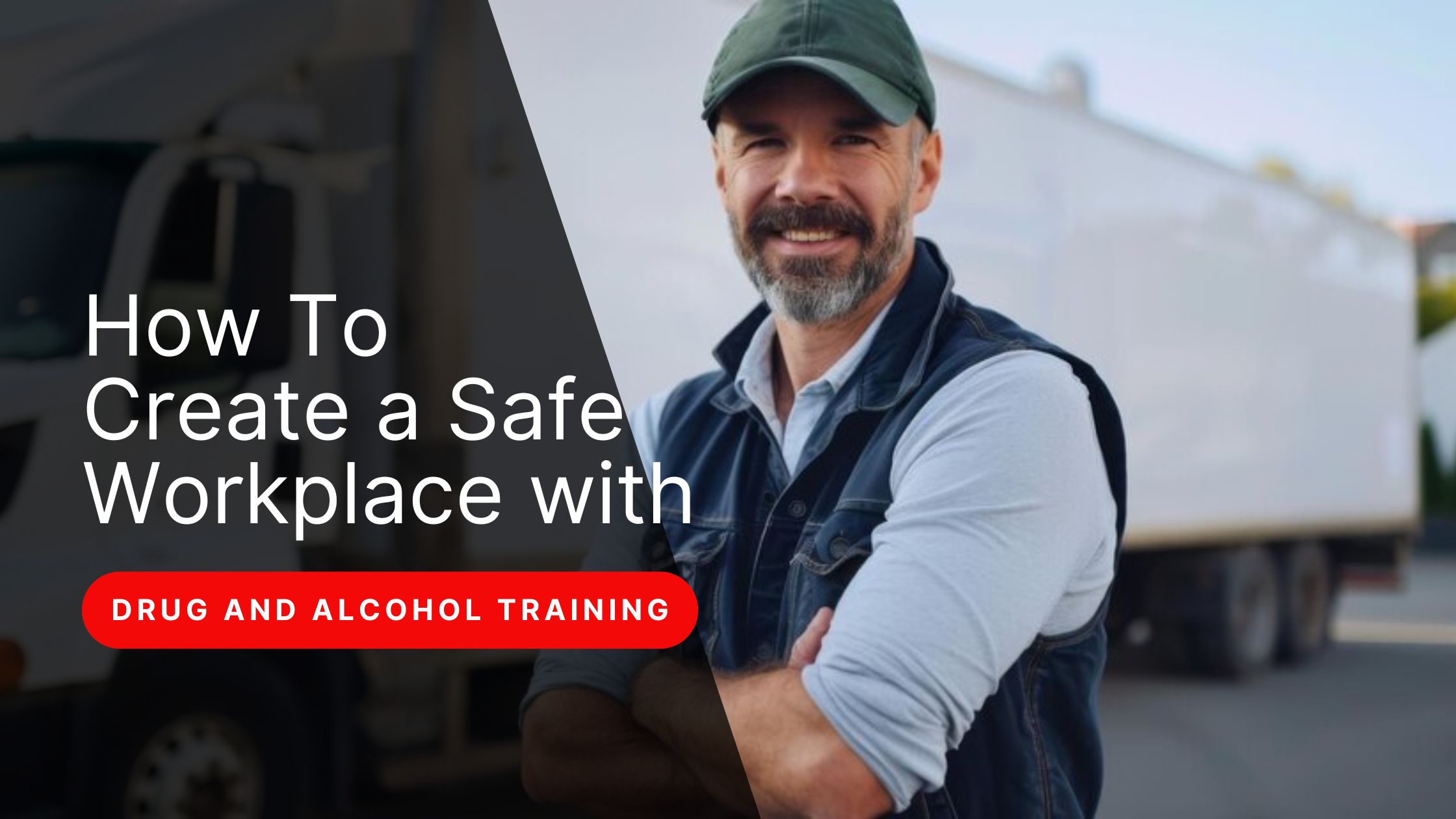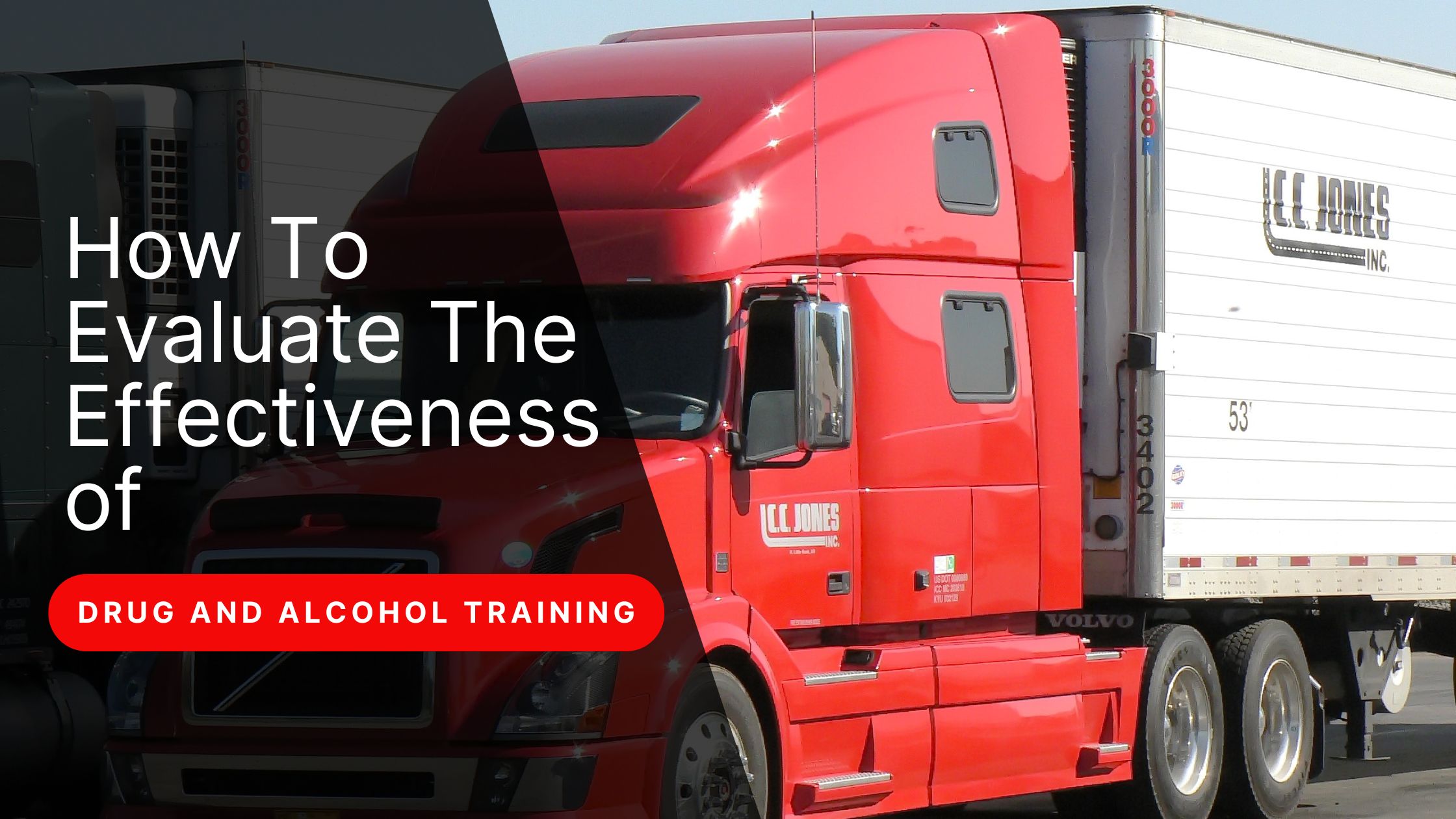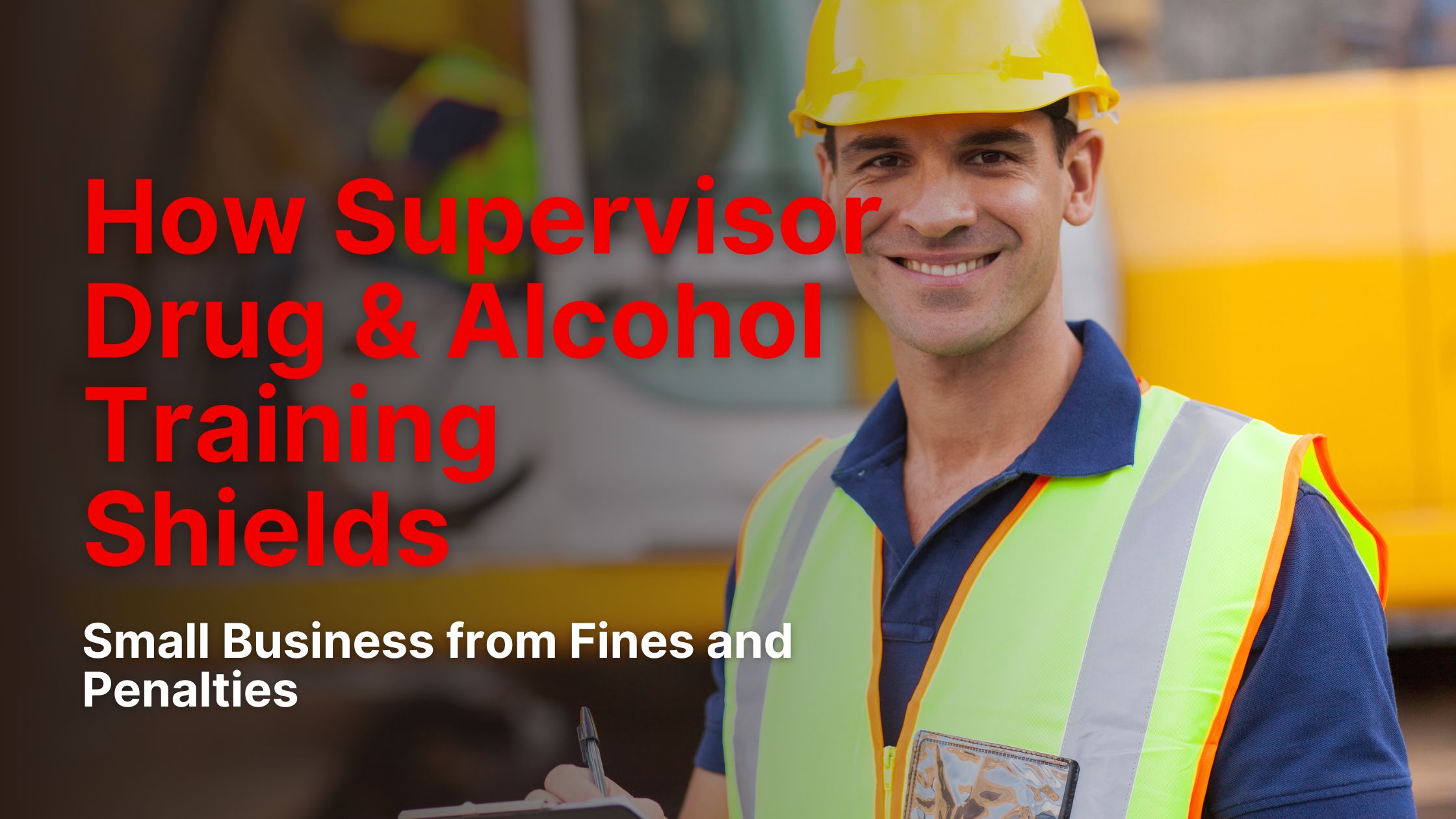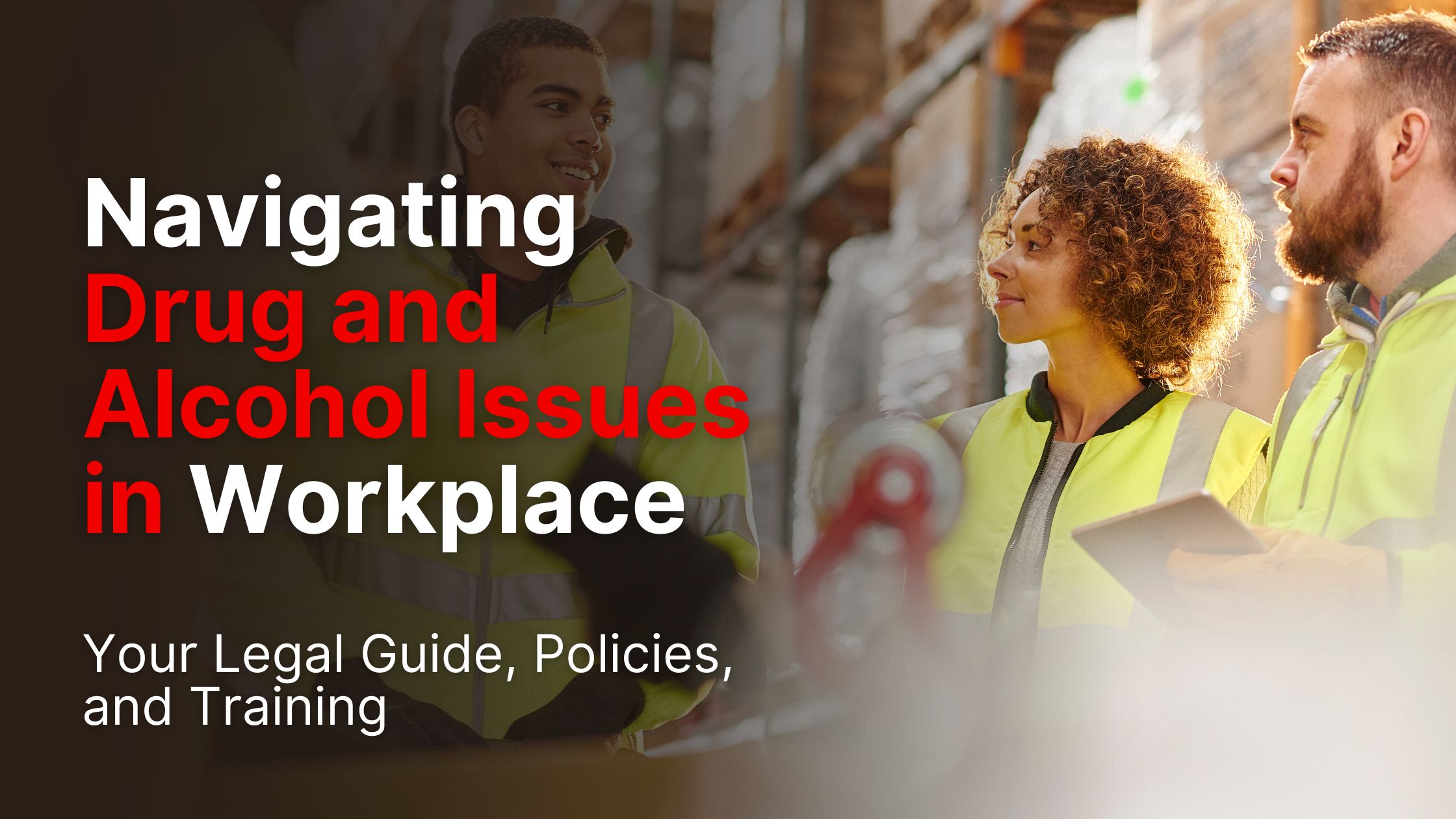No matter what industry or business you’re in, drug and alcohol use in the workplace can have detrimental effects on businesses, from compromising safety to reducing productivity and damaging reputation. This is a big concern for transportation and logistics (T&L) businesses, where employees, especially drivers, are responsible for transporting goods on the roads daily. If drivers use drugs or alcohol, it can lead to accidents and put their lives and others at risk.
One effective strategy to address and mitigate this problem is investing in DOT Drug and Alcohol Supervisor Training. Even though this training is important, there are many wrong ideas about it. These misconceptions might stop companies from investing in it.
In this article, we’ll debunk the top 10 drug and alcohol supervisor training myths so you can make intelligent decisions.
Top 10 Drug and Alcohol Supervisor Training Myths and Facts
Myth #1: It is Optional:
Fact: Contrary to popular belief, drug and alcohol supervisor training is not optional but rather a legal requirement in many jurisdictions.
Regulatory bodies such as the Occupational Safety and Health Administration (OSHA) mandate employers to train supervisors on recognizing and addressing substance abuse issues in the workplace. Ignoring this requirement can lead to legal consequences and jeopardize employee safety.
Myth #2: Only Certain Industries this Training
Fact: Drugs and alcohol can cause problems for workers in any kind of job, not just certain industries like transportation or healthcare.
Substance abuse can make people do their jobs poorly and make bad decisions even in places you might not expect, like offices or restaurants. So, all types of businesses need to have supervisor training on this topic. This training helps everyone understand how to deal with these issues and make sure the workplace is safe for
Myth #3: It is Engought on its Own
Fact: Drug and alcohol testing are essential parts of a program to tackle substance abuse, but they're not the whole story.
Supervisor training is just as necessary because it helps prevent problems before they happen, steps in early when there are signs of trouble, and supports employees who need help with substance abuse.
Trained supervisors know what to look for if someone is not okay because of drugs or alcohol and can act quickly to stop accidents from happening and offer the right support. So, while testing is part of the plan, training supervisors is crucial for keeping everyone safe and healthy at work.
Myth #4: Supervisors Can Handle Substance Abuse Issues Without Training
Fact: Addressing substance abuse issues requires specialized knowledge and skills that supervisors may not possess without proper training.
Training equips supervisors to identify signs of impairment, communicate effectively with employees, and navigate the complexities of substance abuse policies and procedures.
Without this training, supervisors might make mistakes in dealing with these situations, which could cause more problems. So, giving supervisors the right training is essential for handling substance abuse issues effectively and avoiding unintended problems.
Myth #5: It is Time-Consuming and Costly
Fact: Training programs might indeed cost money upfront, but they're worth it in the long run. Good training can actually save companies a lot of money by preventing accidents.
It makes sure that employees show up for work and keeps them from quitting because of substance abuse issues.
Plus, there are lots of training options out there that are affordable and flexible, like online courses or workshops. This means companies can find something that fits their budget and schedule. So, investing in training is a smart move that pays off by keeping the workplace safe and productive.
Myth #6: This Training Leads to Stigmatization
Fact: The goal of DOT supervisor training is not to stigmatize employees but rather to promote a supportive and inclusive workplace culture. The training teaches supervisors to deal with substance abuse issues in a caring and respectful way.
They learn to handle these situations with empathy, keep things confidential, and respect the rights of employees. The idea is to help employees early on and connect them with the proper support. The training helps create a workplace where everyone feels supported and included by giving supervisors the right skills and knowledge.
Myth #7: It’s a One-Time Event
Fact: Substance abuse issues evolve over time, and ongoing training is essential to keep supervisors informed about emerging trends, regulations, and best practices.
Ongoing supervisor drug and alcohol training courses help them stay up-to-date on new trends, rules, and the best ways to handle these issues.
Taking refresher courses regularly helps supervisors know the latest strategies for spotting and dealing with substance abuse at work. This continuous learning helps them stay ahead of the game and make sure the workplace stays safe and healthy for everyone.
Myth #8: It is Ineffective
Fact: Many studies show that training supervisors really works when it comes to making the workplace safer and more productive.
Trained supervisors are key to preventing accidents, helping employees recover from substance abuse, and ensuring everyone follows safety rules. By giving supervisors the right tools and know-how to handle substance abuse issues, training improves things for employees and employers. It creates a workplace where everyone can thrive and stay safe.
Myth #9: Substance Abuse is a Personal Issue, Not a Workplace Concern
Fact: Substance abuse not only poses risks to individual health and well-being but also has significant implications for workplace safety, productivity, and morale.
Employers have a duty to provide a safe working environment free from hazards, including those associated with substance abuse. Addressing substance abuse as a workplace concern through training and policies demonstrates a commitment to employee welfare and organizational success.
Myth #10: It is Separate from Overall Safety Initiatives
Fact: Adding drug and alcohol supervisor training to overall safety efforts makes it even more valuable and important.
Substance abuse can connect with other safety problems at work, so it's crucial to deal with them all together. By combining training on substance abuse with other safety programs, companies can create a unified approach to keeping everyone safe. This helps build a workplace where safety is a top priority for everyone, at every level.
Conclusion
Clearing up the misconceptions about drug and alcohol supervisor training is crucial for making smart choices and keeping workplaces safe.
When employers know the facts and realize how important this training is, they can take action to deal with substance abuse issues effectively.
Investing in thorough training programs doesn't just make employees healthier and happier—it also helps the company succeed and follow the rules. With the right knowledge, supervisors become key players in making sure everyone stays safe and healthy at work.Are you looking for drug and alcohol supervisor training? ICCouncil offers various online courses focused on promoting a drug-free work environment. Get in touch with our team today to explore these options further.






